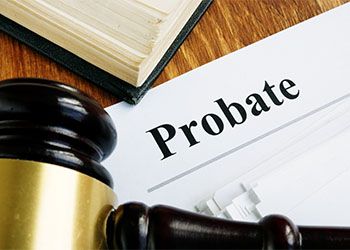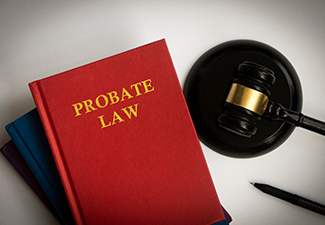Common Misconceptions About Probate
The probate process is often misunderstood. People going through probate often have questions since it may be the first time they go through it. That is why talking to a professional probate attorney can clear up questions and, most importantly, shed unfortunate misconceptions about the entire process.
At Mark E. Tillery, Attorney at Law, I work diligently to help Knoxville, Tennessee, residents navigate the waters of the probate process. He proudly represents hardworking people throughout Knox County, including Maryville, Farragut, and Clinton.

Common Misconceptions about Probate in Tennessee
It’s important to take the necessary precautions to make sure probate does not become an unexpected issue. Some common misconceptions include the following:
If I Have a Will, My Estate Won’t Go Through Probate
Having a will can help reduce the time and expense of settling an estate. Still, it does not necessarily eliminate the need for probate. Probate is the legal process of distributing a deceased person’s assets to their heirs, and a will is one of the tools used in that process.
In some states, if the value of the estate is small or if the assets are structured in a way that avoids probate (such as a living trust or joint tenancy), it may be possible to avoid probate altogether. However, in many cases, a will must still go through probate to be legally recognized to ensure that the deceased person’s assets are distributed according to their wishes.
Even if a will is in place, the probate process can still be time-consuming and costly. An estate planning attorney can advise you on the specific probate laws in your state and help determine the best way to distribute your assets to minimize the costs and complexities of probate.
Probate Means That the State Is Getting All My Assets
Probate does not mean that the state will take all of your assets. Probate is a legal process used to distribute a deceased person’s assets to their heirs. Still, it does not result in the state taking control of those assets.
During probate, the court oversees the distribution of the deceased person’s assets, including property, bank accounts, stocks, and other forms of wealth. The court ensures that the assets are distributed according to the deceased person’s will or, if there is no will, according to the state’s laws. The probate process can involve paying debts, taxes, and other expenses, which can take several months or even years to complete.
It’s important to note that probate is a public process, and the court records are open to the public, which can include information about the deceased person’s assets and debts. However, this information is not the same as the state taking control of the assets. The assets are distributed to the heirs as specified in the will or by the state’s laws.
The Probate Process Takes Years to Finalize
The length of the probate process can vary depending on several factors, including the size and complexity of the estate, the presence of disputes or challenges to the will, and the specific probate laws and procedures in the state where the deceased person lived. In some cases, probate can take only a few months to complete, while in others, it can take several years.
The probate process typically begins with filing a petition with the appropriate probate court and appointing a personal representative (also known as an executor) to manage the estate. The executor is responsible for collecting and distributing the deceased person’s assets, paying debts and taxes, and distributing the remaining assets to the beneficiaries.
It’s important to remember that the probate process is not always lengthy or expensive, and many estates can be settled relatively quickly and inexpensively. However, those concerned about the length and cost of the probate process may consider alternative estate planning strategies, such as creating a living trust or transferring assets into a trust, avoiding probate altogether.
Estate Taxes Will Consume Most of My Estate
Estate taxes can have a significant impact on the size of an estate. Nevertheless, they typically do not consume the majority of the estate. Estate taxes are federal taxes levied on transferring a person’s assets upon their death. The estate tax is calculated based on the value of the assets in the estate minus any deductions or exemptions that may be available.
The United States has a federal estate tax exemption amount currently set at $11.7 million per person. This situation means that the first $11.7 million of an estate is exempt from federal estate taxes. The exemption amount is effectively doubled for married couples, as a surviving spouse can inherit the deceased spouse’s unused exemption.
It’s important to note that some states also have their estate taxes, which can have different exemption amounts and tax rates. In addition, while the federal estate tax exemption amount is currently quite high, it is subject to change and could be lower in the future.
I Don’t Need an Attorney to go Through the Probate Process
This concept is technically true. No legal requirements obligate folks to hire a probate attorney to go through the probate process. However, it is highly recommended to retain the services of a professional estate planning or probate attorney to avoid potential compliance issues or taxes.
Protecting Your Rights Every Step of the Way
Getting the right legal counsel from a professional probate attorney can reduce the likelihood of complications as the process moves forward. Foregoing legal counsel may lead to complications causing delays and additional expenses.
My mission is to help protect my clients’ rights every step of the way. Call me to get the legal counsel you deserve, so don’t go at it alone. Reach out today to schedule a consultation directly with me.



